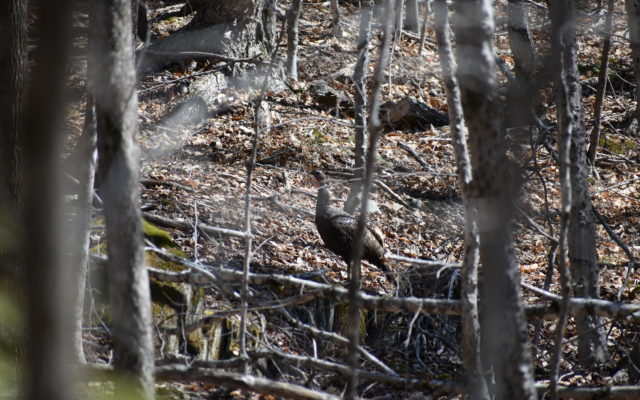
New law eliminates requirement to tag wild turkeys during fall hunting season
By Pete Warner, Bangor Daily News Staff
It is going to be more convenient and less expensive for Maine hunters who are successful during the 2021 fall wild turkey season.
The Legislature in June passed a law that eliminates the requirement for hunters to register the turkeys they harvest during the fall season.
Nate Webb, the wildlife division director for the Maine Department of Inland Fisheries and Wildlife, said the law was the result of broader discussions about wild turkey registrations and the process for registering the state’s three other big-game species: white tail deer, moose and bears.
Webb said removing the requirement to register wild turkeys during the fall season will relieve the burden on hunters without compromising the department’s ability to monitor and manage the turkey population.
“Upon review of our turkey management system, and some research that we’ve just wrapped up at the University of Maine, we felt that requiring hunters to register turkeys only in the spring would meet most of our management needs for turkeys,” Webb said.
He explained that the spring harvest data provides a good picture when determining the population, bag limits and which Wildlife Management Districts in which to allow turkey hunting.
That said, the DIF&W is likely to monitor the fall harvest in other ways, including the possibility of conducting some postseason surveys of turkey hunters.
“It’s still important for us to look at the impact of our harvest regulations and evaluate harvest levels across the state,” Webb said, “but we felt we didn’t need the level of precision or accuracy that we need with spring data in order to effectively manage turkeys.”
The fall season will mark the second time in the last four turkey hunting seasons that registrations have not been required. In April 2020, Gov. Janet Mills and DIF&W Commissioner Judy Camuso opened the spring season earlier than usual and suspended the need to register birds, citing the desire to keep Mainers safe during the onset of the COVID-19 pandemic.
As a follow-up, DIF&W contracted with a survey firm to poll hunters and gather information about the spring harvest.
“It certainly didn’t provide the level of accuracy or resolution that mandatory reporting does, but we got some basic information that was helpful,” Webb said.
The elimination of the registration process for wild turkeys harvested in the fall places the responsibility on hunters to follow Maine hunting laws and abide by seasonal bag limits. Webb said the dynamic is the same for hunters who pursue upland and migratory game birds such as ruffed grouse, woodcock and ducks.
“We only require registration for a handful of species and we certainly have mechanisms to enforce daily bag limits and seasonal bag limits outside of that,” Webb said, referring to Maine Warden Service patrols.
Existing rules for the spring wild turkey season will remain in place for 2022. Hunters must register birds at a licensed tagging station and pay a fee of $2 for each turkey harvested.
Maine’s general fall turkey season is scheduled for Sept. 20 through Nov. 6, with Youth Turkey Day set Saturday, Sept. 18. The season bag limit varies by Wildlife Management District from one to five birds.
The Maine Department of Inland Fisheries and Wildlife also has been charged by the Legislature to study electronic tagging of big game animals. The department must determine whether implementing a self-reporting system for deer, bear, moose and turkeys is feasible and might be beneficial when balanced with the costs and logistical challenges.
The department must report its findings to the Committee on Inland Fisheries and Wildlife by Jan. 3, 2022.
Section 2 of the same Legislative resolution directs DIF&W to increase the number of big game tagging stations to better meet registration needs. It provides for the department to allow some hunting-related businesses to apply as registration agents and waive some requirements involving minimum days and times of operation or restrictions related to location.